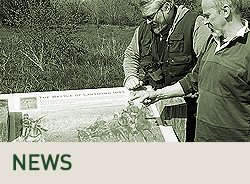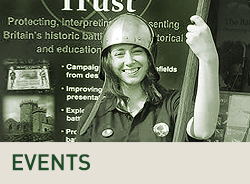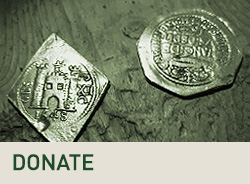Life of Edward II
When they [the rebels] reached Boroughbridge, that there at any rate they might rest for a night, who should be there but Andrew Harclay, that active soldier, already aware of the Earl's flight. He had fully informed himself of the Earl's order of march and his plans, and had arrived with some 4,000 men, whom he had led with all speed to that place. The Earls were settling into their lodgings in the town, when they heard that Andrew and his followers had come to destroy them utterly, so they left the town to meet their opponents in two columns. The Earl of Hereford crossed by the bridge with his men‑at‑arms, but none of them was mounted. For the bridge was narrow, and offered no path for horsemen in battle array. The Earl of Lancaster with his knights made their way to the ford of the river. But Andrew Harclay, like a prudent knight, had shrewdly stationed a force of men‑at‑arms opposite each crossing. The Earl of Hereford forthwith attacked the enemy, but at length fell badly wounded in the fighting and died. Three or four knights were killed with the Earl in that conflict. Roger de Clifford and very many others returned to the town badly wounded. Others, trying to cross the ford, were lamentably cut up by a shower of arrows; but after the death of the Earl of Hereford their zeal for battle cooled off, and they at once retreated. But the Earl of Lancaster made a truce with Andrew Harclay to keep the peace until the morrow; and when this was done each returned to his lodging. On the same night the sheriff of York came with a large force to attack the King's enemies; relying on his help Andrew Harclay entered the town very early, and taking the Earl of Lancaster and almost all the other knights and esquires scatheless, led them off to York and imprisoned them. Some left their horses and putting off their armour looked round for ancient worn‑out garments, and took to the road as beggars. But their caution was of no avail, for not a single well‑known man among them all escaped.
Extract translated from the Latin in Rothwell, English historical documents, 1189-1327, London, Eyre & Spottiswoode, 1975 285‑6





